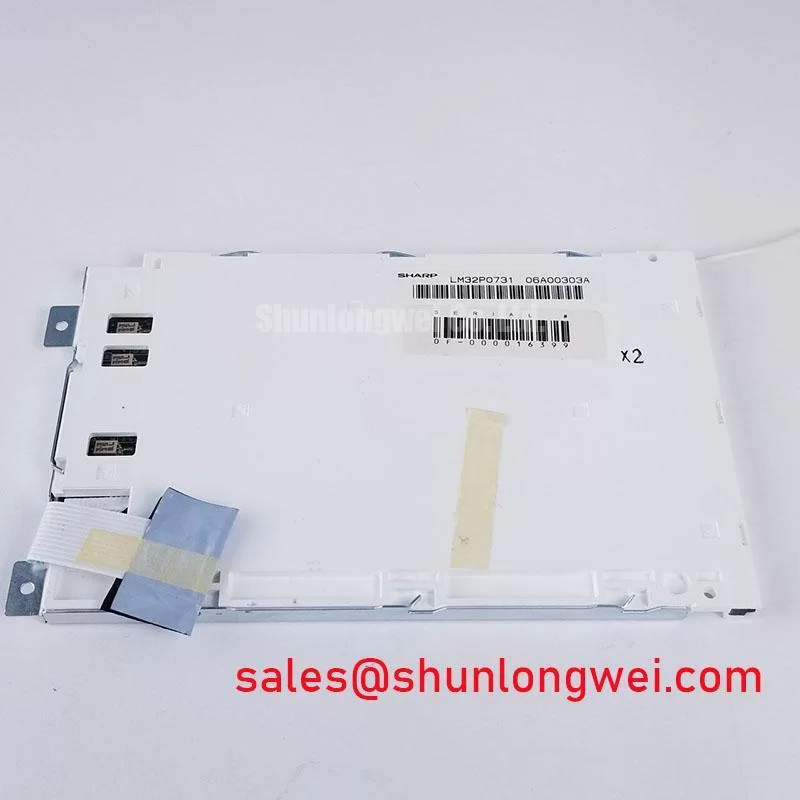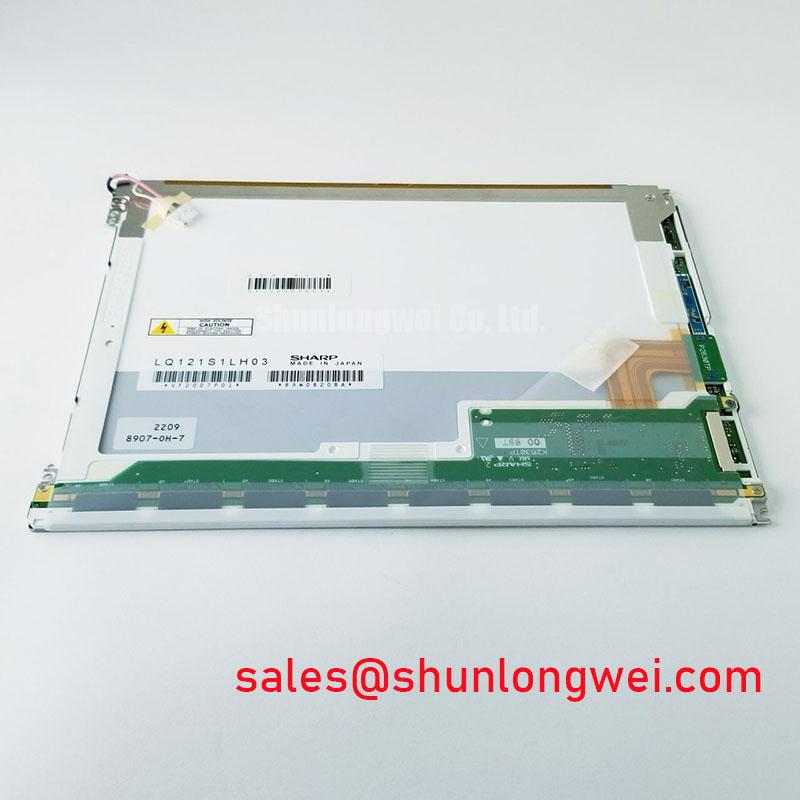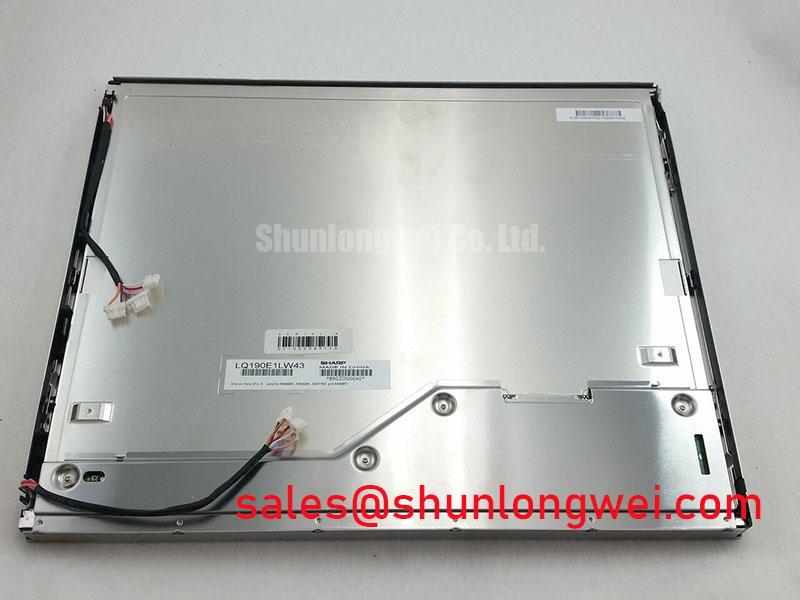Content last revised on November 14, 2025
Sharp LQ121S1DG61: Robust 12.1" SVGA Industrial Display
Technical Overview: Clarity and Resilience by Design
The Sharp LQ121S1DG61 is a 12.1-inch SVGA TFT-LCD engineered for exceptional visual clarity and operational stability in challenging industrial environments. Based on proven amorphous silicon (a-Si TFT) technology, this display delivers a stable and reliable human-machine interface (HMI) foundation. Its anti-glare surface treatment is a critical feature, designed to minimize specular reflection and ensure data legibility under direct overhead lighting, thereby reducing the potential for operator error in fast-paced settings.
Top Specs: 800x600 SVGA | 400 cd/m² Luminance | -10°C to 70°C Operating Temperature
Key Benefits: Enhanced environmental resilience; Superior readability in high ambient light.
Future-Proofing HMI Design for Industrial Automation
In the era of Industry 4.0 and the Industrial Internet of Things (IIoT), the reliability of every component is paramount. The HMI is no longer just a display; it is a critical node for data visualization and system control. The LQ121S1DG61's design directly addresses this need for durability. Its wide operating temperature range and robust mechanical construction ensure consistent performance on factory floors, in unconditioned warehouses, or in field equipment where environmental control is not guaranteed. Investing in such a resilient display component contributes to a lower total cost of ownership (TCO) by reducing service calls, minimizing downtime, and extending the operational life of the end system. For a deeper understanding of this philosophy, explore our guide on the differences between industrial and consumer-grade displays.
Engineered for Clarity in Demanding Field Applications
The specific performance characteristics of the Sharp LQ121S1DG61 make it a suitable candidate for a range of specialized applications where visual accuracy and uptime are critical. The combination of its SVGA resolution, sufficient brightness, and anti-glare surface supports clear information delivery.
- Industrial Control Panels: Provides operators with clear, immediate visual feedback for process monitoring and control, where misreading data can lead to production errors.
- Test and Measurement Instruments: Delivers the necessary clarity for viewing detailed waveforms, schematics, and measurement data without ambiguity.
- Medical Diagnostic Equipment: Offers a stable and consistent display for non-critical monitoring systems, where image integrity is essential for accurate assessment.
- Transportation Systems: Its resilience to moderate vibration and temperature fluctuations makes it a viable option for in-cabin displays in logistics and public transport vehicles.
For legacy industrial systems requiring an SVGA interface and robust performance between -10°C and 70°C, the LQ121S1DG61 offers a mechanically sound and visually reliable HMI solution.
Data-Informed Component Evaluation
To support your design and procurement decisions, the following table presents a factual comparison of key specifications. This data is intended to facilitate a thorough evaluation based on your specific system requirements. Note that different technologies, such as backlight systems, can have significant implications for power consumption and thermal management.
| Feature | Sharp LQ121S1DG61 | G121S1-L01 | Engineering Consideration |
|---|---|---|---|
| Operating Temperature | -10°C to 70°C | -30°C to 80°C | The G121S1-L01 provides a wider operational range, which may be critical for applications in extreme cold or heat. |
| Backlight System | 1 CCFL | WLED | A WLED backlight, as found in the G121S1-L01, generally offers a longer operational lifespan and lower power draw compared to CCFL technology. |
| Luminance (Typical) | 400 cd/m² | 450 cd/m² | The G121S1-L01 offers a moderate increase in brightness, which could be beneficial for environments with very high ambient light. |
Analyzing the Core of Visual Performance and Durability
A component's value is defined by the engineering problems it solves. The LQ121S1DG61's specifications directly translate into tangible design advantages. What is the key benefit of the LQ121S1DG61's surface? Its anti-glare treatment enhances readability in high ambient light. This is achieved through a micro-textured surface that diffuses incident light, preventing sharp, distracting reflections that can obscure critical information and cause operator fatigue.
Furthermore, the display's specified operating temperature range of -10°C to +70°C defines its operational "safe zone." This range can be visualized like the load-bearing capacity of a structural beam; operating within these thermal limits ensures the electronic components function as designed, preserving performance and longevity. This tolerance is essential for systems that experience cold starts in the morning and rising temperatures throughout the operational day. How does its LVDS interface help system design? It simplifies connection and reduces EMI for reliable data transfer, a crucial factor in complex industrial machinery. This interface standard is well-established, ensuring compatibility with a wide array of industrial motherboards and single-board computers.
LQ121S1DG61 Core Specifications at a Glance
This table highlights the key performance indicators for the Sharp LQ121S1DG61, providing essential data for initial system integration assessments. For complete details, please refer to the official product datasheet.
| Parameter | Value |
|---|---|
| Screen Size | 12.1 inches Diagonal |
| Resolution | 800(RGB) x 600 [SVGA] |
| Brightness | 400 cd/m² (Typical) |
| Contrast Ratio | 600:1 (Typical) |
| Operating Temperature | -10°C to 70°C |
| Signal Interface | LVDS (1 channel, 6-bit) |
A Strategic Choice for Long-Term System Reliability
Selecting an industrial display is a long-term investment in your system's operational integrity. The Sharp LQ121S1DG61 represents a strategic choice for designers prioritizing proven technology and environmental ruggedness over cutting-edge specifications. Its balanced feature set provides a dependable foundation for HMIs that must perform consistently, day after day, in the demanding environments that define modern industry. For projects that require similar durability but with different resolutions or interface types, display modules such as the G121STN01.0 may present alternative feature sets for consideration. By focusing on durability and visual clarity, you build systems that not only meet today's requirements but also withstand the challenges of their intended lifecycle.












